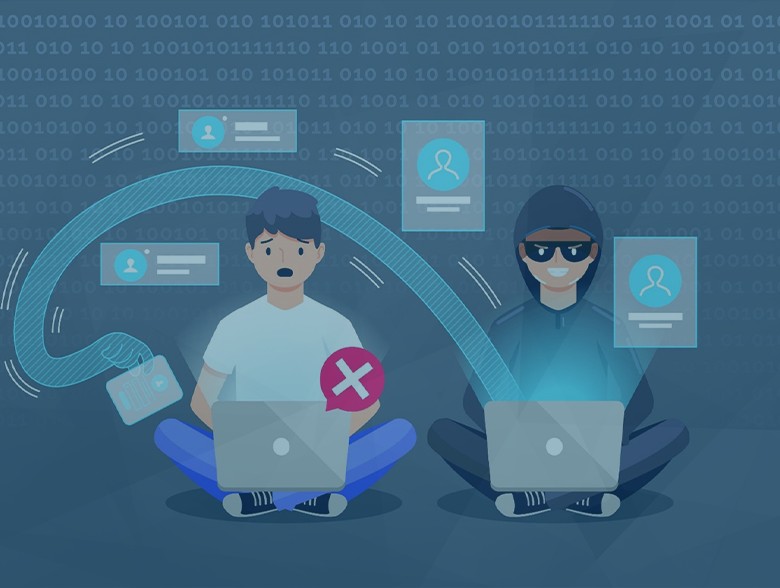In an age driven by data, cyber-related crimes are on the rise. Business leaders must invest in new strategies designed to keep their customers and their personal data safe from illicit actors.
By Bryan Seely, Keynote Speaker and Cybersecurity Expert
Our world is driven by data. Vulnerabilities are ready to be exploited by bad actors everywhere we look. Hacks targeting world governments are frequently reported and subsequently covered in global media, but what worries me is the growing amount of innocent consumers being affected by data breaches every day. Massive corporations are failing to adapt quickly enough to the changing landscape.
The global big data analytics market was valued at $272bn in 2022 and is expected to reach close to $750bn by the end of the decade. A growing industry will always be met with an increase in rogue actors looking to profit from it illegally, and consumers must be vigilant.
We submit or create personal data sometimes without even knowing it. Storing passwords online and enabling website cookies are just two examples of things we do every day to make our lives easier. Increasing efficiency is often our primary concern without contemplating the security implications of such actions.
There has been a clear up-tick in cybercrime around the world since the turn of the century as more and more devices are connected to the internet. In the US alone, an estimated 53.35 million citizens were in some way impacted by cybercrime in the first half of 2022. In 2021, US nationals lost $6.9bn to cyber-related crimes.
As we saw during the pandemic, many flocked to the world of decentralized finance (DeFi), seeking opportunity as cryptocurrencies took off in value, but also for security.
Blockchain technology promises enhanced levels of security and personal data protection and while in many cases this remains true, clear risks still remain especially as the tech becomes more mainstream.
It does not take much research to understand the growing magnitude of crypto-related cybercrime. Last year, cybercriminals stole over $2.8bn from innocent crypto holders through various hacks and exploits.
During such exploits, user funds are usually compromised but, due to the ways in which online crypto wallets and accounts are usually set up, consumers may not realize that their personal data is also being stolen via sophisticated phishing attacks.
Major governments continue to be incredibly concerned by the uptick in such criminal behavior. Earlier this year, the Biden Administration published a new National Cybersecurity Strategy promising, amongst other things, significant new long-term investment into cybersecurity capabilities.
While measures like this will undoubtedly help consumers, the reality is that criminals will always find novel ways around defense measures.
We know that nothing is ever truly unhackable. Fortunately, technology enables us to design products that prioritize users’ personal data. Crucially, the tech should cover both traditional and decentralized finance.
The world’s largest and most successful company of all time, Apple, issued a public statement late last year acknowledging ‘increasingly sophisticated and complex’ threats to user data and personal security. Following this, they announced numerous security updates to products used by hundreds of millions every day.
In the DeFi sphere, popular Web3 company SafeMoon released a new product called Orbital Shield at the beginning of 2023 which utilizes advanced 256-bit encryption to anonymize user data. This software is actively being rolled out throughout the company’s product ecosystem meaning that their one million plus wallet users are safe in the knowledge that even in the event of a hack, their data remains secure.
In March, when discussing the need to protect user data, SafeMoon’s CEO, John Karony explained how companies are incentivized to collect and store user data. He went on to say that ‘securing user data should keep developers up at night’ and that ‘the very concept of data storage needs to be reimagined altogether’.
As the cyber threat continues to evolve, new products designed to cope with this are needed across industries. Data which includes one’s most personal information including date of birth, address, bank account information, relatives and more continues to be at risk from exploitation.
We know that there is no such thing as perfect security, but like locking your car or setting the alarm in your home, there are measures that businesses can take to help secure their users’ personal security.
As stated by President Biden in March, cybersecurity ‘is essential to the basic functioning of our economy’. Digital connectivity should always be a tool that uplifts and empowers people everywhere, not one used for repression and coercion.
About the Author
 Bryan Seely is a world-renowned ethical hacker, cyber security keynote speaker and thought leader who frequently speaks at major global cybersecurity conferences. He is a former US Marine and host of Black Hat MEA podcast who famously became the only person in history to successfully wiretap the US Secret Service and FBI, informing both agencies of his work.
Bryan Seely is a world-renowned ethical hacker, cyber security keynote speaker and thought leader who frequently speaks at major global cybersecurity conferences. He is a former US Marine and host of Black Hat MEA podcast who famously became the only person in history to successfully wiretap the US Secret Service and FBI, informing both agencies of his work.
Bryan can be reached online at https://www.bryanseely.com/ and @bryanthemapsguy

